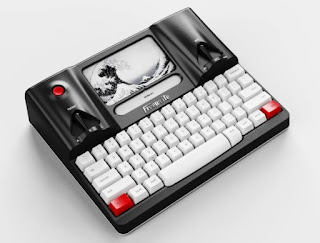Break your chapters down into scenes or scene segments of about 400-500 words. If you are a long-time Scrivener user, you will be way ahead of me.
Now, put every sentence on its own line.
Now edit.
I find it much easier when I pull everything apart. Like a bundle of tangled yarn, doing this allows me to see problems clearly, spot repeats, identify plain crazy-talk, and see problems very clearly. I can spot narrative that should be dialog, info-dumps, long boring sections of uninterested writing, and places that rush through without savoring the words.
Line by line, put things back together as you fix things. Start reassembling and untangling that yarn, rebuilding your scene a piece at a time. Read back through your untangled scene, and see how much more tight things are, how clean your dialog becomes, and how much less confused everything is now.
I even find the process to be less intimidating before I even begin. I'm not staring at a 'wall of text' either familiar or unfamiliar, I am now looking at a line-by-line worksheet of ideas to be considered for inclusion into this scene. When the next one comes up, think about the following:
- Has the narrator already said this? Has a character in dialog?
- Is this telling? How can this be made to show?
- Does this even need to be said?
- Is there a way for the reader to figure this out instead of me saying it directly?
- Am I disarming tension, or increasing it? (this is critical)
- Can I word this another way so the reader has to turn the page to find out the answer?
It happens. Relax.
It's our job in editing to fix this lack of clarity with later clarity and a sane, rested mind later. When we write, we are typically aren't in an editing mind, nor should we be. We are riding that wave of creativity, and we need to let our passions flow. After the ride, we need to enjoy the rush, let the adrenaline subside, and then take a moment to rest and recover.
We will look back at the GoPro footage of our surfboard ride later, when we take it into AfterEffects later to edit it and take the best parts and string them together in an exciting movie of what we did. Remember, 90% of your 'footage' or your 'book' will be those boring parts of sitting on the surfboard waiting for the magic to happen. Similarly, a lot of what you write in a book will be that 'waiting for things to happen' text that needs to be trimmed, cut, or made to be something special.
So adopt a process of editing that accounts for your 'in the moment' confusion, and pull things apart later during editing to see what you are really saying.
You'll find yourself making better edits, and understanding each part of the creative process for maximum effectiveness in each.
When you're riding the wave, let loose and ride.
When you are editing the recording, pull things apart analytically and deliver the best experience for your audience.

No comments:
Post a Comment